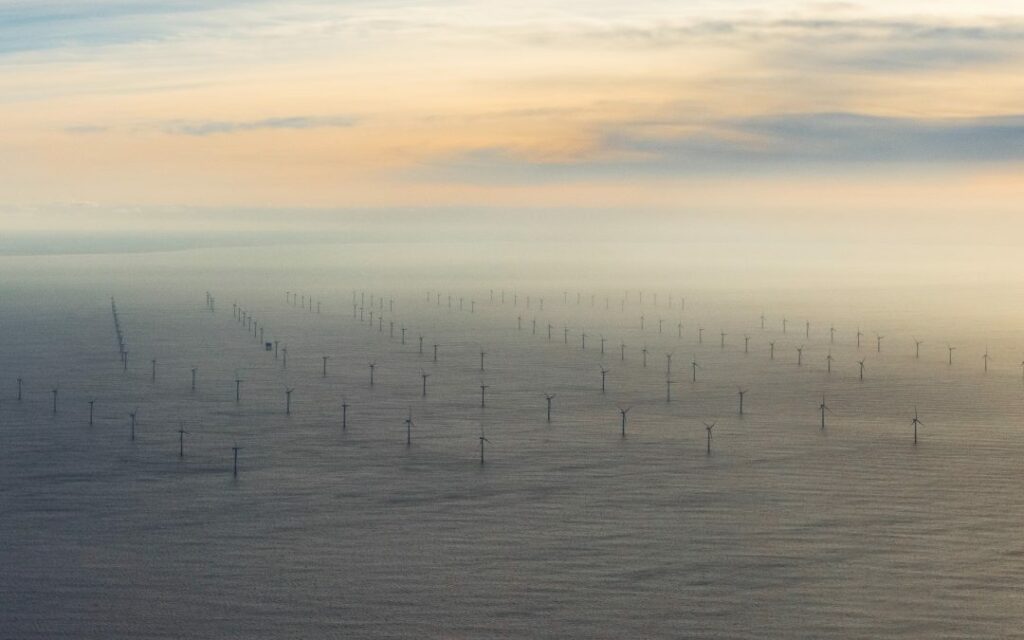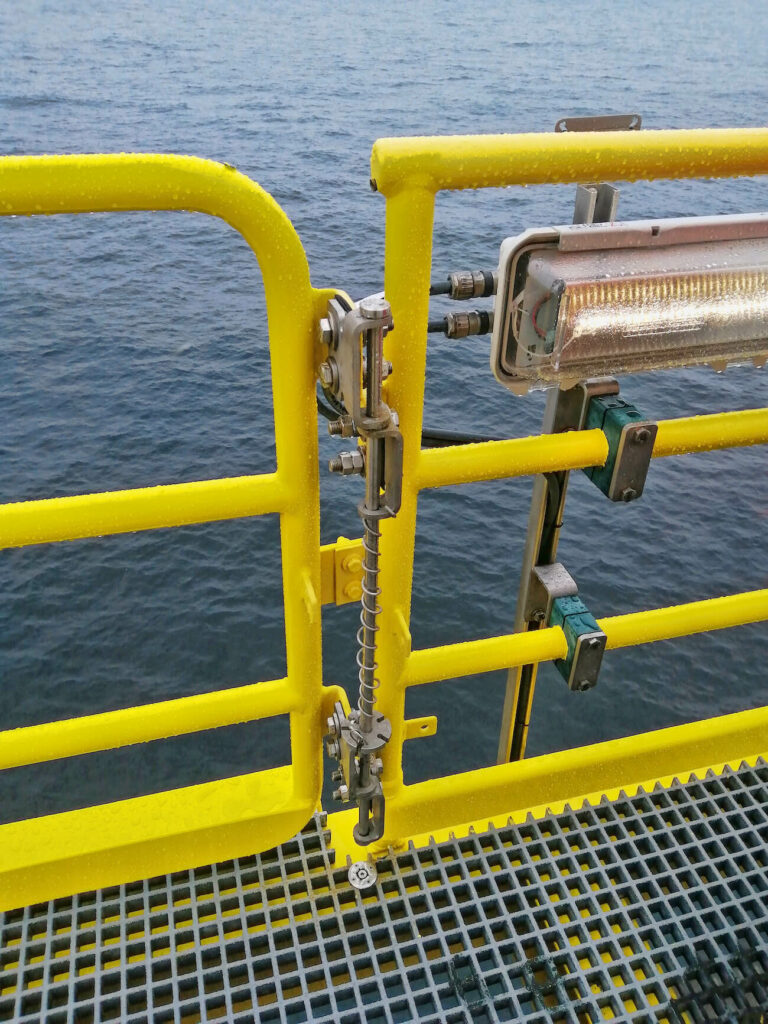
Supplying hardware for access gates offshore
Five years ago a world leading design, engineering and project management consultancy firm were detailed with the FEED (Front End Engineering Design) of one of the UK’s largest offshore wind farm projects.
One particular aspect of the design was brought to attention of Gatemaster: the safety access gates on the internal and external access platforms of the turbines. A bespoke solution was needed to ensure that the gates remained closed at all times, for the safety of engineers who visit the turbines to carry out maintenance tasks. However, making gate hardware for offshore use has its own world of challenges.
Construction challenges of offshore hardware on access gates
Construction of components used in access gate hardware for offshore use poses several challenges. The highly corrosive environment is a test specific to offshore engineering which design companies are faced with. With highly corrosive elements present such as carbon dioxide, hydrogen sulphide and other hazardous chemicals created by a combination of extreme pressure and temperatures, it is one of the harshest environments that equipment can be subjected to.
Using the incorrect materials and finishing processes can lead to failure of a section of the construction. This can lead to potentially significant costs and harm to the environment and human safety as well as financially.
Materials
One of most common materials used for marine and offshore industries is 316 stainless steel. This contains a significant amount of the chemical element molybdenum. The main function of molybdenum in stainless steel is to increase the corrosive resistance of the metal. Whilst 316 stainless steel is often used because of these non-corrosive benefits, it is also one of the more difficult metals to machine. If that wasn’t enough, it is also more expensive than a lot of other materials, creating challenges when making components.
The design of a device to ensure the platform access gates closed reliably had then a twofold issue; one, could a suitable closing mechanism be made from 316 stainless steel given its properties and high cost? And two, would the mechanism be durable enough to withstand the harsh conditions? These questions were discussed in depth with the offshore engineers. Once the boundaries of the design had been defined, prototypes were tested, and the first closers were fitted in situ.
Testing our gate hardware for offshore use
Having previous experience with pickling and passivation on stainless steel parts, we included this process for some of the test closers. This included an acid chemical treatment to remove contaminants from the surface as these contaminants can cause corrosion in extreme environments.
The testing proved successful and the closers were fitted to all of the platform safety gates on the turbines.
We have successfully completed projects for 2 large wind farms in the UK, both of which were bespoke for the application. These and similar products are well suited to wind turbines and any offshore platforms such as sub-stations and offshore oil- and gas rigs.
Gatemaster has been designing solutions for the gate industry for over 25 years, and we are recognised for our expertise and ability to work closely with the designers and come up with bespoke engineered solutions. We work with many companies worldwide and are always interested in any challenges clients face with bespoke gate hardware.

Get in touch here for more information on how we can supply you with quality gate hardware for offshore use.